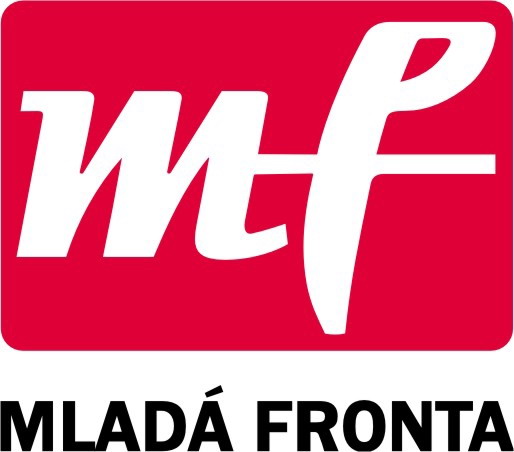Where is Mladá Fronta's money from?
In truth, although I had many problems at that book and magazine publishing house, I never saw or had any indication that there were any Russians behind it. It was clear from the beginning that Mladá Fronta a.s. was hiding something, when I first arrived at its headquarters after I was hired for the position of publisher (with the job of renewing all their 11 titles and create new ones). I was immediately warned I could not host a reporter called Coufalová, from the media-oriented magazine Strategie (which was later bought by Mladá Fronta, but at the time belonged to Sanoma publishing house). The reason I could not receive the visit of the reporter, who wanted to make an article about the new plans of the company, was that Mf’s official address was still on Radlická street, Prague 5, in a building that had traditionally housed the company in the past, but which had been bought for a suspiciously much smaller value than market prices. We were supposed to still be officially working from there. When I protested and insisted in being interviewed at the real headquarters, considering more than 150 people worked there, so how much of a secret could that be, I was told: „Well, we are in Czech Republic, Mr Golgo, where what matters is not what we see, but what is on paper.“ We officially moved a few months later.
But the man who was directing my work was at another building, near Anděl, in a company with a different name, was František Savov. Apparently around 30 years old at the time, I was told his homonimous father had worked at the Ministry of Agriculture during the previous regime and it was through his contacts from the past that it was made possible for one of the most important brands in book and magazine publishing to end up in obscure hands.
The man was obviously totally ignorant about the business he was directing. I was amazed at how amateur he was. Not to mention the day he wanted to show me something on his computer and, by accident, clicked on the wrong, previously opened window, getting me to see a full blown picture of an orgy. That was what he was doing at his spacious office at 3 in the afternoon – looking at porn.
No wonder his secretary soon became his girlfriend and from that she went straight up to become the general director…
He seemed confused and with time I understood he had no money, that his job was to present my projects to investors, who would then, for example, give us the funds for the weekly I created, MF Plus.
It was exactly when I came to his office with the idea for that magazine that I was told for the first time that he would consult with external investors. Savov himself was afraid of having a magazine with the name Mladá Fronta, because of the newspaper with the same name, which is much more famous and influential. I argued that, according to articles on Britské listy, Mladá Fronta Dnes had been „sold“ illegally and that, anyway, if the company was called Mladá Fronta, so the fact that there is a more famous Mladá Fronta, it does not mean I cannot use the company name in my products. So, if the company was called Mladá Fronta, and on top of it was the original Mladá Fronta, then why would I not have a weekly with its name?
Of course the reason I wanted that title was because I knew the vast majority of readers have no idea that there are two Mladá Fronta, so they would come to the magazine stand, see the new title and think that their favorite newspaper now had a newsweekly. This way I would save a lot of money in the long process of brand-building. Once the new magazine was supposed to fill up the hole left by the then recent closing of Mladý Svět, its style was to be also for the general public, so-called masses, meaning an „easy“ magazine, just like the newspaper MfDnes.
But because Savov was probably trying to stay low key as a consequence of his business having something to hide, he was against it. A week later, though, he came up and said that „the Americans“ thought was a great idea and wanted to invest on it. From that I got a hint that the people giving money for the company were from the U.S. Later some Brits were also mentioned in an unrelated matter, during a weekly meeting. But never Russians.
I wonder where the reporter from the economic daily got the sentence that was quoted as mine. I only found out about it much later, after Petr Žantovský mentioned it after interviewing me at Radio Beat. It looks like my name was either involved in a high business game, so that Zdeněk Bakala would get the publishing house Economia, or some incompetent reporter just misquoted me.


 Příliš drahá fotovoltaická chyba
Příliš drahá fotovoltaická chyba Anglický deník: Kdo je dneska vlastně kovaný Brit?
Anglický deník: Kdo je dneska vlastně kovaný Brit? Deník dobrovolníka: Jak jsem si připsal další bojové úlovky
Deník dobrovolníka: Jak jsem si připsal další bojové úlovky Invaze nanečisto aneb Velké dojmy z malé invaze přes tichý rybník
Invaze nanečisto aneb Velké dojmy z malé invaze přes tichý rybník Trump německému kancléři: Invaze v Normandii pro vás "nebyl příjemný den"
Trump německému kancléři: Invaze v Normandii pro vás "nebyl příjemný den"

